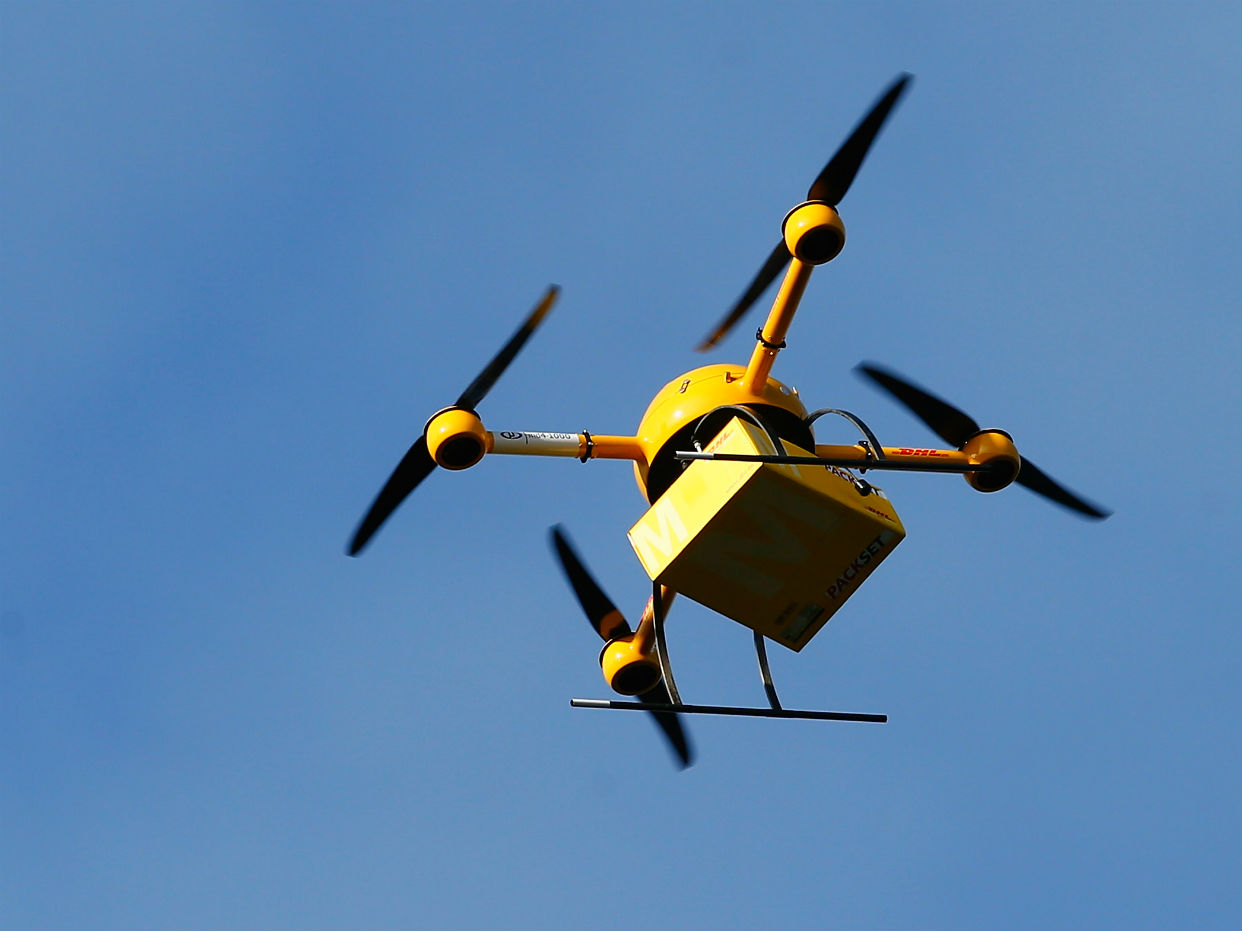Amazon moves a step closer to delivery drone future
Internet retail giant teams up with Civil Aviation Authority to trial delivery method in UK

A free daily email with the biggest news stories of the day – and the best features from TheWeek.com
You are now subscribed
Your newsletter sign-up was successful
Retail giant Amazon could soon be delivering parcels via drone after being given government approval to test out the method in the UK.
The company has teamed up with the Civil Aviation Authority (CAA) to explore how to make delivery-by-drone a reality.
The CAA has granted a series of concessions in certain controlled spaces to allow Amazon to overcome present regulations about drone flying.
The Week
Escape your echo chamber. Get the facts behind the news, plus analysis from multiple perspectives.

Sign up for The Week's Free Newsletters
From our morning news briefing to a weekly Good News Newsletter, get the best of The Week delivered directly to your inbox.
From our morning news briefing to a weekly Good News Newsletter, get the best of The Week delivered directly to your inbox.
First of these is the operation of the craft beyond the line of sight. Current UK rules say pilots must be able to clearly see the drone at all times. Amazon's Prime Air service needs to demonstrate it is safe to fly outside these limits.
Next is the need to automatically steer the drone away from objects it may hit. The tests will trial sensor-based autonomy "sense and avoid" technologies to manoeuvre the craft away from possible hazard.
Finally, unlike other drone flights, the trial will also see one pilot controlling a fleet of highly-autonomous craft. At present, one person must be in charge of one flight.
Amazon regards the UK as "world leader in enabling drone innovation", reports the Daily Telegraph. The tests are the most extensive trials of the company's drones anywhere in the world yet.
A free daily email with the biggest news stories of the day – and the best features from TheWeek.com
There is no firm date for when Prime Air will launch, although Amazon founder Jeff Bezos, in 2013, suggested it could become available within four to five years.
The BBC adds that ministers backing the tests want to pave the way for all businesses to use the technology in the future. However, convincing the public that the craft won't invade privacy is still a sticky issue.